16
Coorg and Crazy Beans Company
Hello Folks! Sorry for being absconding for this long, got caught up in the hustle of life
Anyways, here is a fresh one and I believe its perfect to make up for the “disappearance”.
The end of 2017 was a crazy one, exhausting honestly. So to rejuvenate I planned a trip to Coorg, I have heard so many good things about the place I had to see it by myself.
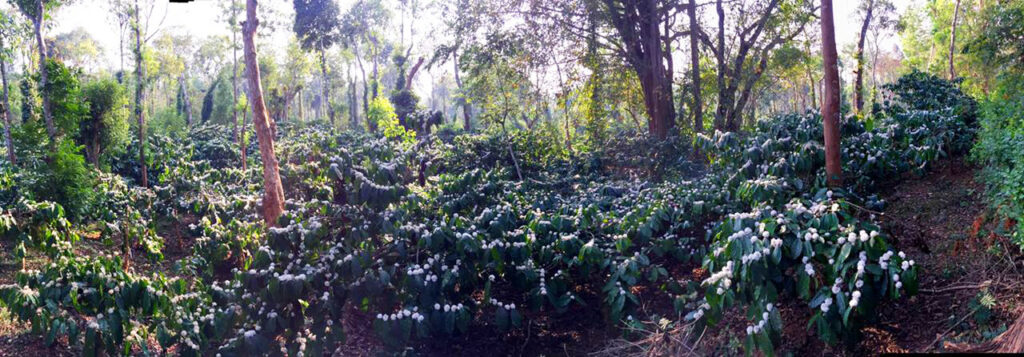
Trust me it was one of the most beautiful experiences I have ever had on a trip. The place is blessed with breathtaking landscapes and wildlife. The sun rises with the lush green view of the coffee plantation that goes on for stretches is mesmerising.
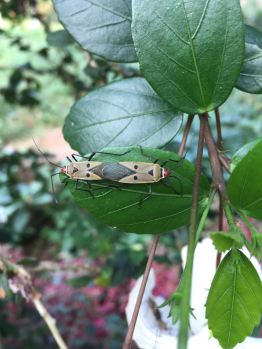
Coorg is synonym to coffee and being a coffee lover I wanted to explore. Luckily enough I had a chance to meet Mr. Bharath who runs a coffee plantation there. He is certified by coffee board of India as a Roaster and Barista and also we are members of SCAA. A very passionate man who treats coffee as his treasure.
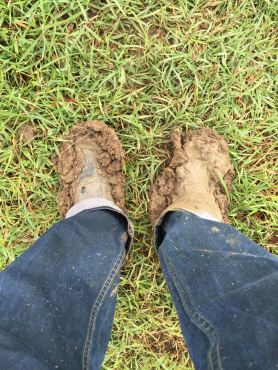
As I went around with him exploring the coffee estates I witnessed how much love, passion and hard work goes into our early morning cuppa.

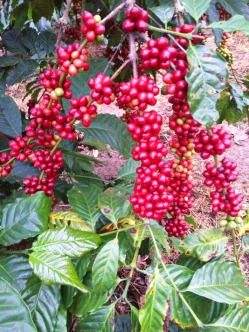
To make the best coffee available to all of us as fresh as it can get Bharath has started an online portal http://www.crazybeancompany.com/ where Natural processed coffee is available. The best part of it all is that the order can be custom roasted and grounded as per your requirement. I had to share the details afterall we all deserve our good blissful cup of coffee.
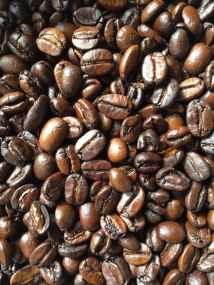
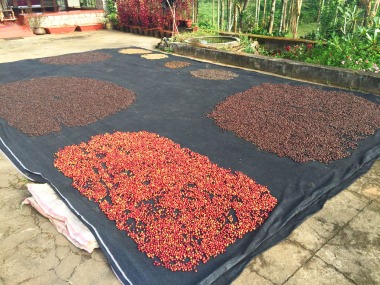
In his words –
“Farmers by birth, roasters by choice and business people by accident. We love our food and drink and we enjoy making it for others as well. There’s an old saying- “if you’re good at something don’t do it for free” so we started The Crazy Bean Company.
We can tell you that our farm in the heartland of Kodagu is irrigated by a freshwater spring, fertilised by wild animals and birds, the fruits are serenaded by classical music and caressed of their stems on maturity. Well, the classical music part isn’t true everything else is. We also follow modern, scientific and sustainable methods of farming, which means absolutely no pesticides.“

So here you go guys! Hope I am helping out some of my travellers & coffee loving friends.
Cheers !
source: http://www.apurvapriyadarshini.wordpress.com / Home> Shoe-Syrup-Shushi / posted in ‘ On the Road / by Apurva Priyadarshini / December 25th, 2017
Bengalurean’s ‘humane’ device to save crops from wild animals
Each device features four LED lights. The lights are positioned in pairs, in such a way that from a distance they look like a pair of glowing eyes of a predator, founder S R Ayan said.
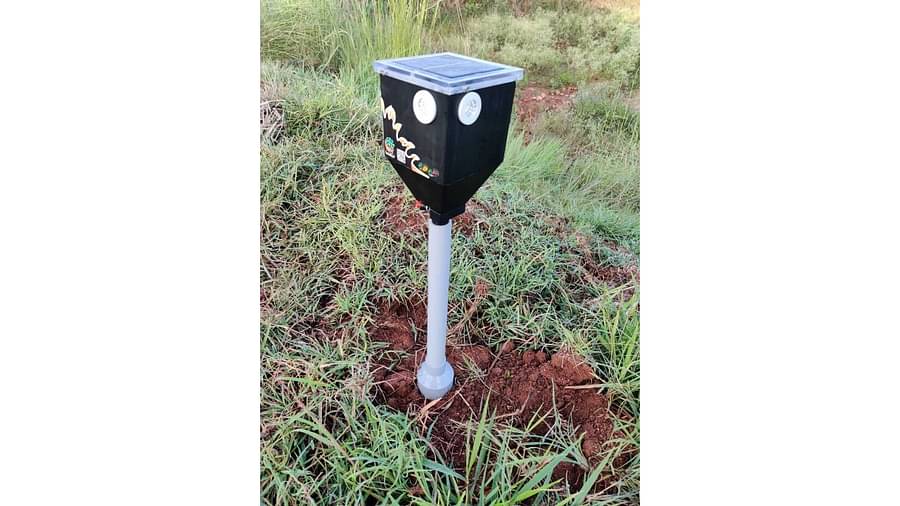
A Bengaluren has designed a lighting system to help farmers protect their crops and livestock from wildlife, during the night. The innovative product does not harm the wild animals. Katidhan, a five-member startup located on New BEL Road, recently won an investment of Rs 1.5 crore on business reality show, Shark Tank India.
On the show, its founder S R Ayan said farmers in India lose 30-50% of their crops to wildlife. The conventional methods to keep wild animals out include installing electrical fences, planting crude bombs or spraying chemicals. Citing the dangers of such interventions, he said an elephant in Chikkamagaluru died due to electrocution by an electric fence last November.
Ayan says his product, Parabraksh, mitigates the human-animal conflict in a “humane way”. Animals are afraid of other animals and the lighting system is built around this behavioural psychology. “Each device features four LED lights. The lights are positioned in pairs, in such a way that from a distance they look like a pair of glowing eyes of a predator. This scares away the animal.”
The product flashes light in random patterns. Being an autonomous device, it switches on in the dark and switches off as daylight breaks. It runs on solar power but also features a USB charging port for backup.
“Four such lights are needed to protect a farm land of 1 hectare, one in each corner. You can mount them on bamboo sticks or steel poles. The height of the stick or pole will depend on the size of the animal you are targeting,” Ayan adds.
He claims Parabraksh is “over 95%” effective in repelling wild boar, nilgai, elephant, tiger, leopard, and the Himalayan bear. He shares case studies: When these lights were uninstalled from a farm in Tamil Nadu and sent for servicing, elephants returned. For a woman farmer in Maharashtra, crop losses due to wild boars have gone down by 25%. The income of a farmer in Odisha has doubled since elephant invasion stopped.
Ayan says the demand for Parabraksh was more than what his bootstrapped startup could meet, that’s why he decided to raise funds through investors.
It all started with a friend’s SOS call in 2017. “My friend was volunteering with a wildlife organisation in Ladakh. He said villagers were trying to kill the snow leopard that was attacking their livestock. He knew about my background in product design and robotics and asked if I could help,” the 33-yearold recalls.
After a pilot in Ladakh, Parabraksh hit the market in 2020. “Our first taker was a large coffee estate in Kodagu,” he says. About 1,100 units, Rs 9,500 apiece, have been sold since. A majority of the products have been sold to farming and social development collectives in Maharashtra.
“After the show, I am getting enquiries from Kanakapura, Kodagu and Hassan, which see regular elephant movement,” he says.
Monkey chaser
Sensor-based Kapikaat is another product by Katidhan, priced at Rs 5,000 and up. It emits loud sounds to repel monkeys during day time. “It is 70-75 % effective. We reckon that monkeys can get used to the source of the sound and ignore it,” says Ayan.
source: http://www.deccanherald.com / Deccan Herald / Home> India> Karnataka> Bengaluru / by Barkha Kumari / March 27th, 2024
Third Wave Coffee CEO to transition to board member

Third Wave Coffee has announced Co-founder Sushant Goel will transition from his role as CEO to a member of the company’s board, with Rajat Luthra announced as his successor effective from Q1 2024-25.
“As CEO and Co-founder, I have had the privilege of leading the company through its formative years and I am incredibly proud of the journey that we have embarked on,” says Goel. “The brand is ready to embark on its next leg of growth.
“Now, as I transition to the Board, I am excited to continue contributing towards our vision and growth from a different vantage point. Rajat is a veteran in the QSR industry, and I am filled with optimism on what the future holds for Third Wave Coffee under his stewardship.”
Goel, along with Co-founders Ayush Bathwal and Anirudh Sharma, have been able to scale the company to over 100 outlets across India. As CEO, Goel was responsible for steering the company’s business strategy and forging robust investor relations.
Luthra has previously served as CEO of Kentucky Fried Chicken India and Nepal for over a decade.
In a joint statement, representatives of investor companies Westbridge Capital and Creaegis said, “We extend our heartfelt gratitude to Sushant for his instrumental role in shaping the remarkable journey of Third Wave Coffee thus far.”
“As Sushant transitions to his new role on the board, we are confident that his guidance and strategic insights will continue to steer us towards even greater success. Together, under Sushant’s continued guidance and Rajat’s leadership, we are poised to embrace new opportunities and drive the company to new heights.”
source: http://www.gcrmag.com / Global Coffee Report / Home> News / by Dominic Morell/ March 26th, 2024
Coffee may help lower risk of Parkinson’s disease: Study
Love your morning dose of coffee? Well, it may help you avoid the risk of Parkinson’s disease, claims a study.
The study, published online in the April issue of the journal Neurology, included 1,84,024 people aged 35-70 years, who were followed up for a median duration of 13.1 years.
The findings showed that the highest coffee consumers had 37 per cent reduced risk of getting Parkinson’s disease, compared to those who do not drink.
“This study demonstrates that the neuroprotection of coffee on Parkinson’s disease is attributed to caffeine and its metabolites by detailed quantification of plasma caffeine and its metabolites years before diagnosis,” said the researchers from Utrecht University in the Netherlands.
Further, drinking caffeinated coffee lowered risk of the neurodegenerative disease by 43 per cent. The team, however, found no association with decaffeinated coffee.
“Good news for coffee lovers. Caffeinated coffee consumption over a long-term has the potential to lower the risk of Parkinson’s disease,” Dr Sudhir Kumar, a neurologist at Indraprastha Apollo Hospitals in Hyderabad, wrote on X.
“Neuroprotective effect leading to lower risk of Parkinson’s Disease was attributed to caffeine and metabolites such as theophylline and paraxanthine,” he explained.
source: http://www.daijiworld.com / Daijiworld / Home> Health / by IANS / March 25th, 2024
‘Bird Watching Brings People Closer To Nature’
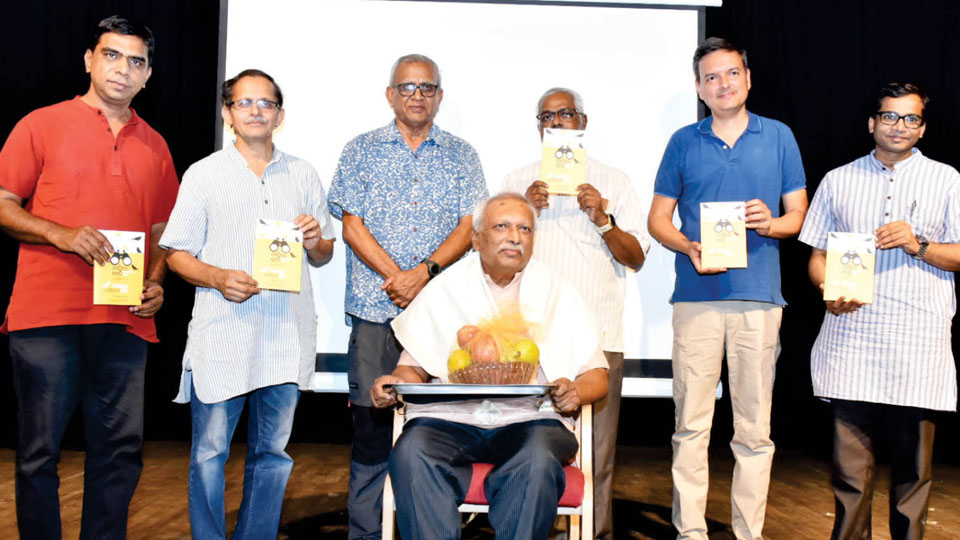
Birder from Kodagu Dr. S.V. Narasimhan feted
Mysore/Mysuru:
Bird watching is one of the mediums to create awareness on environment conservation, said Dr. S.V. Narasimhan, a Birder and Author from Virajpet in Kodagu.
He was speaking after receiving felicitation at ‘A Day with Salim Ali’ event jointly organised by Mysore Science Theatre Festival Trust, Kutuhali, NCF (National Curriculum Framework) and SVYM (Swami Vivekananda Youth Movement) at Kiru Rangamandira here on Saturday.
“We Indians have always understood the importance of environment since we are worshippers of nature and see divinity in all living beings. Students should learn about nature and its conservation,” he said. A doctor by profession, Dr. Narasimhan is perhaps known to many for his passion for birds.
Bird-watcher N.R. Harsha said renowned Ornithologist Dr. Salim Ali had conducted a research on birds between November, 1939 – February, 1940 in Mysuru region and that the recent research had shown the presence of 419 species of birds in Mysuru region.
“Mysuru region has 191 local species and witnesses 129 different species of migratory birds in winter season. In addition, 53 variety of local migratory birds are also spotted in our region. Among the various species of birds found in the country, Mysuru contributes about 30.7 percent and Karnataka contributes 76 percent,” he noted.
On the occasion, Kannada and English version of the book ‘Salim Ali – Wonder in the World of Birds’ (Salim Ali – Pakshi Lokada Beragu’) by Dr. M.C. Manohara/ Shashidhar Dongre were released. Artistes of Arivu Ranga staged a play while talks were delivered on ‘Salim Ali and Me’ by S. Subramanya, ‘Birds of Mysuru Region’ by N.R. Harsha and ‘Bringing Birds to People’ by Abhishek Krishnagopal.
Mysore Science Theatre Festival Trust Trustee Shashidhar Dongre, CFTRI Scientist (retd.) Kollegal Sharma, Suhail Khadar of NCF and Praveen of SVYM were present.
source: http://www.starofmysore.com / Star of Mysore / Home> News / March 25th, 2024
4.66 lakh people in Kodagu eligible to cast vote
A part of Mysuru parliamentary constituency, as many as 4.66 lakh people in Kodagu are eligible to cast their ballot. Out of 4,66,154 voters, 2,37,660 are women, 2,28,478 are men, and 16 are others.
Deputy Commissioner Venkataraja on Monday said the election notification will be issued on March 28 and from the same day onwards nomination papers for the elections to Mysuru-Kodagu Lok Sabha can be filed. April 4 is the last date for filing the nomination papers.
Kodagu comprises of two assembly constituencies – Virajpet and Madikeri.
Madikeri has 2,36,562 voters, including 1,15,159 male, 1,21,394 female voters and nine others. In Virajpet, there are 2,29,592 voters, including 1,13,319 male, 1,16,266 female and seven others.
Kodagu has 9,076 voters who are in the age group of 18 and 19 years. Also, there are over 4,000 voters who are physically challenged. Kodagu has 546 polling booths. The district has 44 sectors officers, 21 flying squads, and 42 static surveillance teams.
source: http://www.thehindu.com / The Hindu / Home> Elections> Lok Sabha / by The Hindu Bureau / March 25th, 2024
Robusta coffee price touches all-time high
Price of robusta coffee has dropped due to supply shortage and global factors.
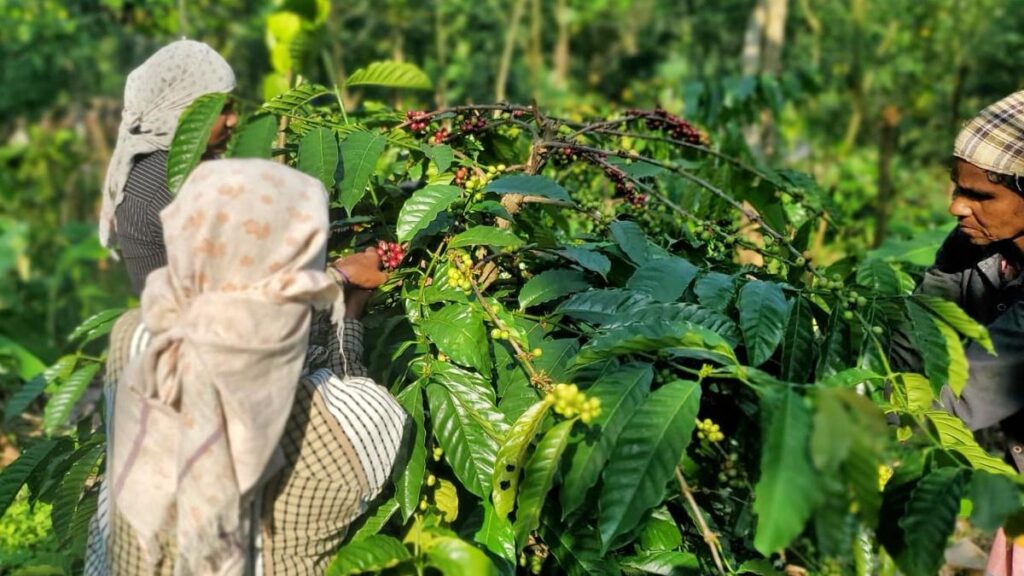
The robusta coffee farmers in south India are jubilant post-harvest with their produce fetching an all-time high price.
The farmgate price of raw robusta coffee berries touched a record ₹172 a kg in Wayanad market on Saturday, as against ₹115 a kg during the corresponding period last year. Meanwhile, spot price of robusta coffee beans stood at ₹315 a kg, up from ₹210 during the same period in 2023. The price was ₹80 and ₹145 a kg for raw berries and beans respectively in March 2022.
Though the harvest is almost complete, there has been a huge shortfall in the supply of coffee to the market this year, thereby contributing to the increase in coffee prices, says sources.
Multiple factors
“We expect a decline of 30% in the production of robusta this year owing to climatic vagaries, especially the scanty blossom shower in robusta growing regions last year,” sources said.
A sharp decline in production of robusta coffee — nearly 2 million bags — in Vietnam, a major Robusta coffee growing country, has also attributed to the increase in price, the sources added. Robusta coffee production in Indonesia too dipped sharply this year, the sources added.
Notably, the price of Arabica variety of coffee has dropped below the price of robusta coffee. The farmgate price of the Arabica variety coffee was ₹305 per kg on Saturday. Though the Arabica variety always fetched a premium price in the market, it is the robusta variety that is witnessing an increase due to its low availability for the first time.
Farmers suspect that the production may decline by 25% to 30% next year too owing to a dearth of backup showers in many robusta coffee growing areas in the country.
Wayanad in Kerala, which is the largest robusta coffee producing district in the country after Coorg in Karnataka, received a rainfall of 29.3 mm in the first week of January. Major parts of the district received no rain since then.
The January showers helped in the blossoming of robusta coffee plants, farmers say. But the absence of backup showers, a major factor in the formation of berries, is a concern.
According to Coffee Board of India, the total production of coffee in the country during the 2022-23 fiscal was 3,52,000 tonnes, including 2,52,000 tons of robusta coffee.
source: http://www.thehindu.com / The Hindu / Home> News> India> Kerala / by E M Manoj / March 24th, 2024
Mathigodu Elephant Camp In Kodagu Now A Tourist Centre
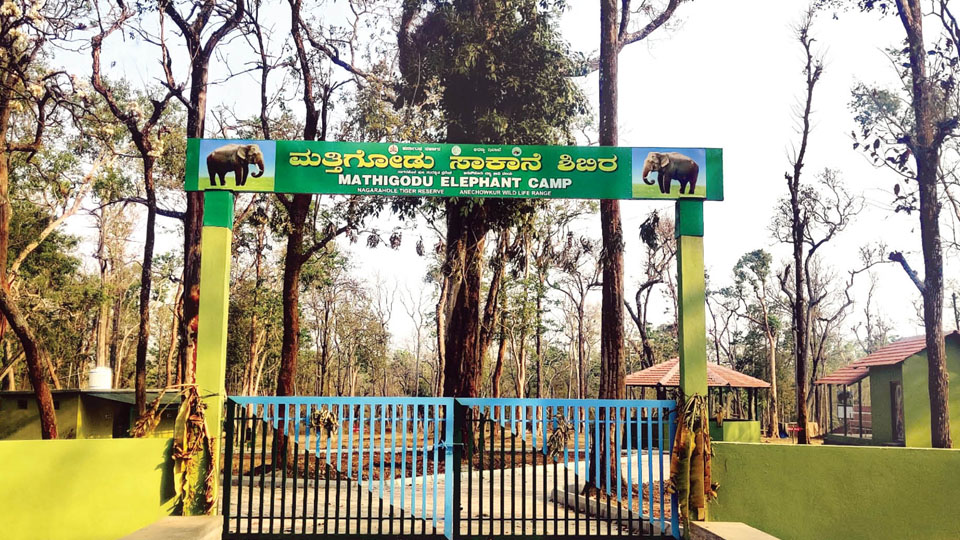
The Mathigodu Elephant Camp, situated a short distance away from the Anechowkur Gate at the entry of Kodagu district from Mysuru, has transformed into a tourist attraction and is set to welcome visitors soon. Among its notable residents are the Dasara Howdah Elephant and the fearless tusker, Abhimanyu.
Passersby along the Mysuru-Gonikoppal Road often halt their vehicles to have a glimpse these majestic creatures, albeit from a distance, as access to the camp was previously restricted for safety reasons and to maintain its exclusivity.
Capitalising on its popularity, the Forest Department has revamped the Mathigodu Elephant Camp into a tourist hub while prioritising safety measures. This camp falls within the precincts of the Nagarahole Tiger Reserve, adding to its allure. The Forest Department has spent Rs. 1 crore towards its development.
In an endeavour to raise awareness about human-wildlife conflicts, concerted efforts are underway to educate tourists visiting the Mathigodu Elephant Camp about wildlife conservation. This initiative seeks to foster a deeper understanding of the delicate balance between human settlements and wildlife habitats, with the hope of mitigating such conflicts in the future.
Despite being recognised as an ideal habitat for the State’s finest elephants by the Forest Department, the Mathigodu Elephant Camp hadn’t been optimised as a tourist destination. Meanwhile, the Dubare Elephant Camp near Kushalnagar experienced a steady influx of visitors.
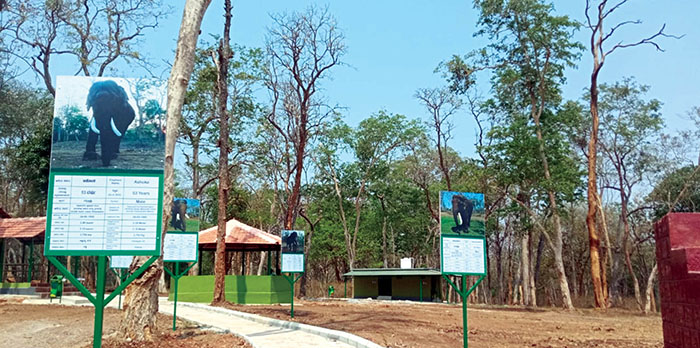
Located inside a jungle
As the camp is located inside a jungle, there is no provision to open shops and hotels here to convert it into a full-fledged commercial centre. However, basic amenities have been meticulously arranged to ensure the comfort and convenience of visitors, including designated parking areas, feeding zones for the elephants and recreational facilities.
To ensure the safety of both visitors and elephants, a railway track barrier gate has been erected, effectively preventing proximity interactions. Additionally, the establishment of two designated parking lots offers travellers ample space to unwind. A dedicated walking path has been constructed, facilitating easy access from the parking areas to the elephant viewing zone.
This setup not only caters to the demand for elephant viewing but also serves as an educational platform for visitors. The place offers comprehensive insights into elephant behaviour, the significance of elephant camps, monitoring protocols, profiles of the famed Dasara elephants, methods of elephant capture, the role of Kumki elephants, feeding practices, distinctions between Asian and African elephant species and other pertinent information concerning the rehabilitation of elephants.
An information centre has been inaugurated, serving as a repository of knowledge on elephants and forest conservation. Equipped with valuable resources, it aims to provide visitors with an immersive learning experience, fostering greater awareness and appreciation for wildlife conservation efforts.
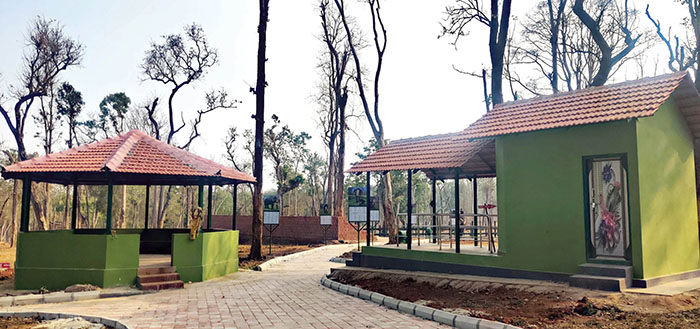
Home for 17 elephants
Currently, the Mathigodu Elephant Camp is home to a distinguished herd of 17 elephants. Among them are Abhimanyu, Bhima, Mahendra, Ravi, Somashekhar, Masti, Ashoka, Kyaata, Chamundeshwari, Bhuvaneshwari, Srikanta, Abhi (Zoo elephant), Rama, Ekalavya and two forest elephants.
Under the leadership of Range Forest Officer (RFO) D. Devaraj, the well-being and welfare of these magnificent creatures are diligently overseen by a team of DRFOs, dedicated staff members and experienced mahouts and kavadis.
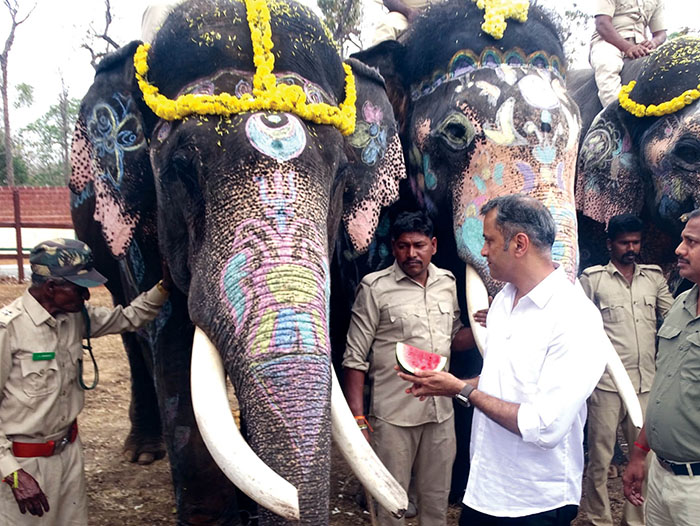
Equipment for surveillance
Visitors have a unique opportunity to witness first-hand the equipment utilised by the Forest Department for managing human-elephant conflicts and operations. Within a designated room, an array of tools is on display, ranging from tranquilliser darts and guns for administering them, to ropes essential for elephant operations.
Additionally, visitors can inspect sophisticated surveillance devices such as camera traps, thermal drones, torches and wireless communication devices utilised in conflict management operations.
This immersive experience will enable visitors to gain a deeper understanding of the intricate procedures and tools employed by the Forest Department. By witnessing these resources up close, visitors can refine their perceptions regarding human-elephant conflict management, appreciating the complexities involved and the efforts undertaken to mitigate such conflicts.
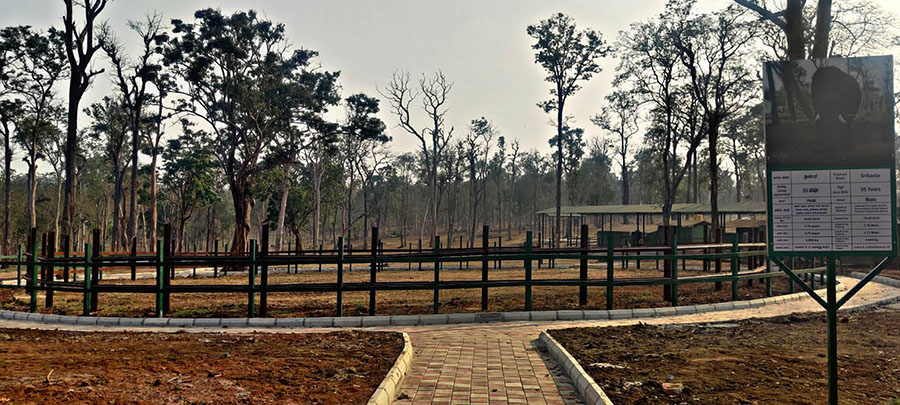
The Information Centre showcases a comprehensive list of distinguished elephants that have had the honour of carrying the 750-kg Golden Howdah during the Dasara festival. Among these pachyderms, Jayamarthanda stands out, having shouldered the Golden Howdah an impressive 45 times.
Other notable elephants who have carried the Howdah are Vijayabahaddur, Nanjunda, Ramaprasad, Motilal Rao, Airavata, Rajendra, Drona (19 times), Balarama (11 times), Arjuna (8+1 times), Abhimanyu (4 times), each adding their majestic presence to the grand procession.
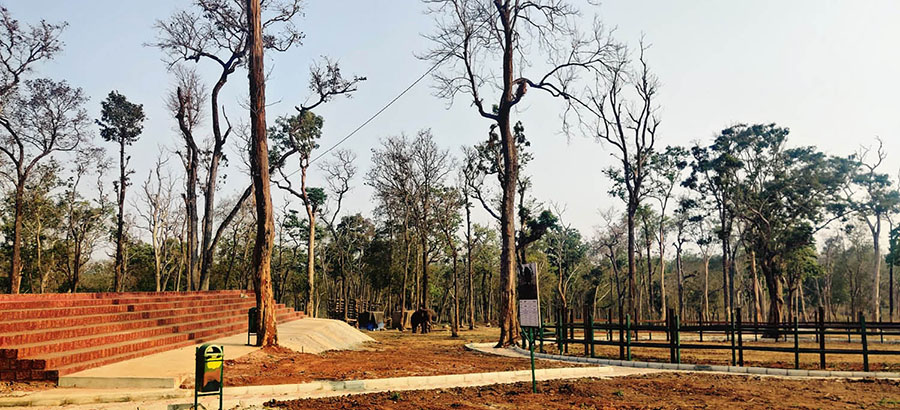
The Mathigodu Elephant Camp has been enhanced to accommodate visitors, with all necessary arrangements for their convenience. Following a formal request to the Government regarding the implementation of an entry fee for tourists visiting the elephant camp, the Government has approved the proposal and granted permission. We have taken the necessary steps to prepare accordingly. —Harshakumar Chikkanaragund,Director (DCF), Nagarahole Tiger Reserve
source: http://www.starofmysore.com / Star of Mysore / Home> Feature Articles> Top Stories / by M T Yogesh Kumar / March 19th, 2024

